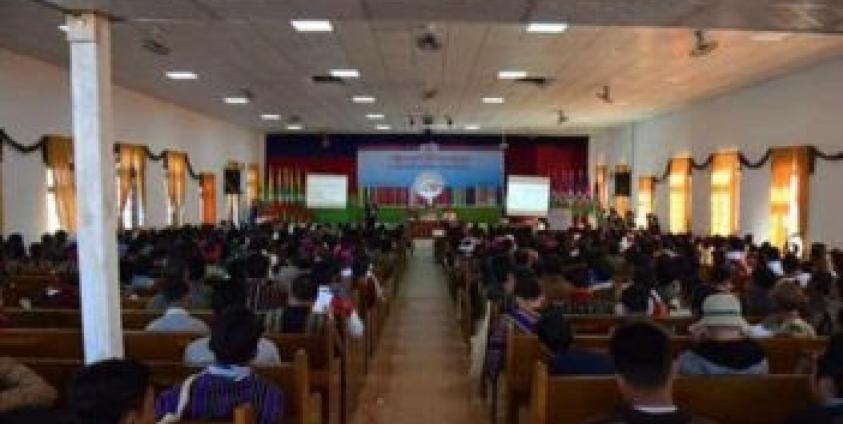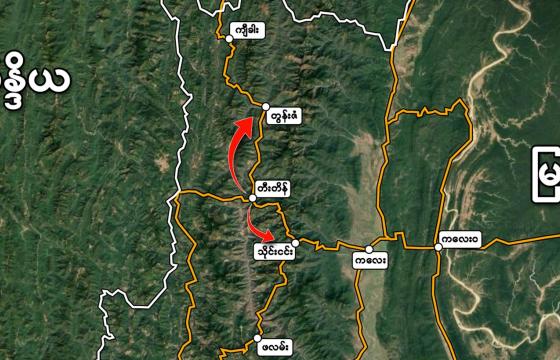Participants at the Chin national-level dialogue have agreed to scuttle any sort of right to secession from the peace process, deeming it unnecessary and counterproductive.
During the three-day meeting in Htantlang township, participants in the forum topic “the principles for building a federal Union”, discussed the secession clause enshrined in the 1947 constitution.
“The current Nationwide Ceasefire Agreement’s [NCA’s] target is to build a federal Union. If we agree to build a federal Union, why do we need a secession clause? Today, we are carrying on the Panglong spirit with its aim to establish a federal Union, and in this spirit, we are trying to make peace through the NCA,” said U Htet Ni, deputy general secretary of the Chin National Front and a member of the Chin national-level political dialogue’s supervisory committee.
The right to secession has long been a point of contention in the peace process. According to some analysts, suggestions of a Shan secession in the 1960s helped propel the dissolution of the constitution and subsequent military coup.
Nevertheless, some participants at the Chin dialogue floated the idea that a secession clause – “states considered members of the Union shall have the right to secede at any time in accordance with their desire” – should be added to the NCA.
Opponents of the proposal said it ran against the current 2008 constitution, and could damage the peace initiative to force the issue. In the bilateral ceasefire signed between the CNF and the government in 2012, the CNF pledged to uphold the “Three Main National Causes”: non-disintegration of the Union, non-disintegration of national solidarity and perpetuation of sovereignty.
The assembly decided against including the secession clause among its consensus opinions for the peace process. The differing views on secession were included in the meeting minutes however.
Translated by Zin Linn
Edited by Laignee Barron







